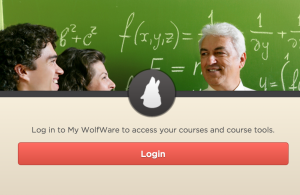Non-Optional: Big Data in Education
Last Thursday was a day full of schoolwork, and that means it was a day full of contributions to the beast of big data. My first morning class, a course on scientific communication, required me to collaborate with other students by discussing our course reading (which is only accessible online and requires log-in to get past a wall) on a Google doc. My second class, a technical elective for my engineering degree, utilized Moodle-based presentation slides, online-accessible videos, and clicker surveys. My full participation in these courses required that I be actively engaged in the practice of contributing to big data, by my online log-ins on each of these many sites.
After classes were done for the day, I moved on to homework – primarily senior design (for reference, my senior design project involves building a large model rocket to launch to an altitude of over a mile). Senior design, over the last few months, has caused me to make an incredible number of contributions to big data as a whole. First, my senior design group chats exclusively using GroupMe, which I log into using my Facebook login (double contribution there!). We also access many resources using the Internet, including not only our course assignments and syllabus but also relevant technical articles and online posts about rocketry. Some of these resources require us to either log into our university library account or even create a new account on whatever website they are hosted; for example, I was required to make a student account for AIAA to access their resources on model rocketry. After each senior design meeting, minutes are written and distributed, and helpful resources are posted, on Google Drive, further requiring everyone to log in. By tracking what websites I am making accounts on, outsiders might deduce that I am personally interested in model rocketry; this would be untrue, as the only reason I am accessing these resources is for my senior design course.
After all the schoolwork was completed, however, my contributions to big data were not yet complete. I use Spotify exclusively to listen to music, meaning my music and streaming choices are publicly available information. Outsiders’ opinion on my taste in music is probably skewed, as my full interests in music cannot possibly be shown at every moment of every day; for example, if I’m upset, I listen to a lot of Broadway musical soundtracks, which is not only embarrassing, but also represents only a very small portion of my musical taste. I also killed some time on Netflix and Facebook, both of which know a lot of personal, now publicly accessible information about me. Netflix suggests shows based on the ones I’ve previously watched; Facebook organizes my newsfeed based on what posts I’m most likely to be interested in. Both of these facts mean that perhaps there are shows and movies and posts and articles that I might enjoy that I’m missing out on, just because some algorithm somewhere determined that I wouldn’t enjoy them. But the information that these algorithms base their decisions on, as I’ve mentioned previously, is flawed; I’m not only interested in things that I’ve done before.
But what’s also important is that, as Ben says in Season 7 of Parks and Recreation, “the internet is non-optional now”. Not only am I involved in optional Internet activities like social media, I’m also required to regularly engage with the Internet in meaningful ways (like logging in, repeatedly visiting websites) in many of my classes, especially classes like senior design or English. If I chose to opt-out of contributing to big data, I would also have to opt-out of my classes, effectively eliminating any chance at graduating.
My tomorrow question: will there eventually be a way for professors to judge (and ultimately grade) engagement in a course, and perhaps also provide guidance if it seems a student is struggling, based not only on the tangibles (blog posts, etc.) but also on the number and time of log-ins and sites visited?

 Next Post
Next Post
I have had teachers who monitor and regularly comment on how often students log-in to the Moodle site for their specific class. This is probably one good way to see who is engaged in the class, but some students can still succeed in the course without logging into Moodle multiple times a day. I think it depends on the professor and their particular teaching style, but this could definitely be a useful way for some teachers to grade participation in their course (especially online courses).
I already mentioned this site in class, but tools like AspireEDU (http://aspiredu.com/) are starting to move in this direction. Also, the book The Filter Bubble touches on some of what you’ve mentioned here, specifically in relation to not necessarily only liking what you’ve listened to in the past.